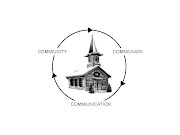
Here's another book that looks promising. I read the excerpt from COLLIDE magazine and was impressed. The book was released in early April and was not yet available for purchase at my local Christian bookstore.
Here are a couple brief points from the book as they appeared in COLLIDE (a magazine that I highly recommend):
"Every church makes a choice in hpw to respond to pop culture, and the choice it makes determines how much of an impact it will have on its community."
Author Tim Stevens goes on to point out the five choices that are possible. I will list them here without his commentary. To find out more visit http://www.colidemagazine.com/ or http://www.popgoesthechurch.com/
Here are our choices:
- Condemn the Culture
- Seperate from the Culture
- Embrace the Culture
- Ignore the Culture
- Leverage the Culture
"[Jesus] would read our books, go to our movies, watch our TV shows, look at our magazines, and surf the Internet so that He could better understand our culture."




